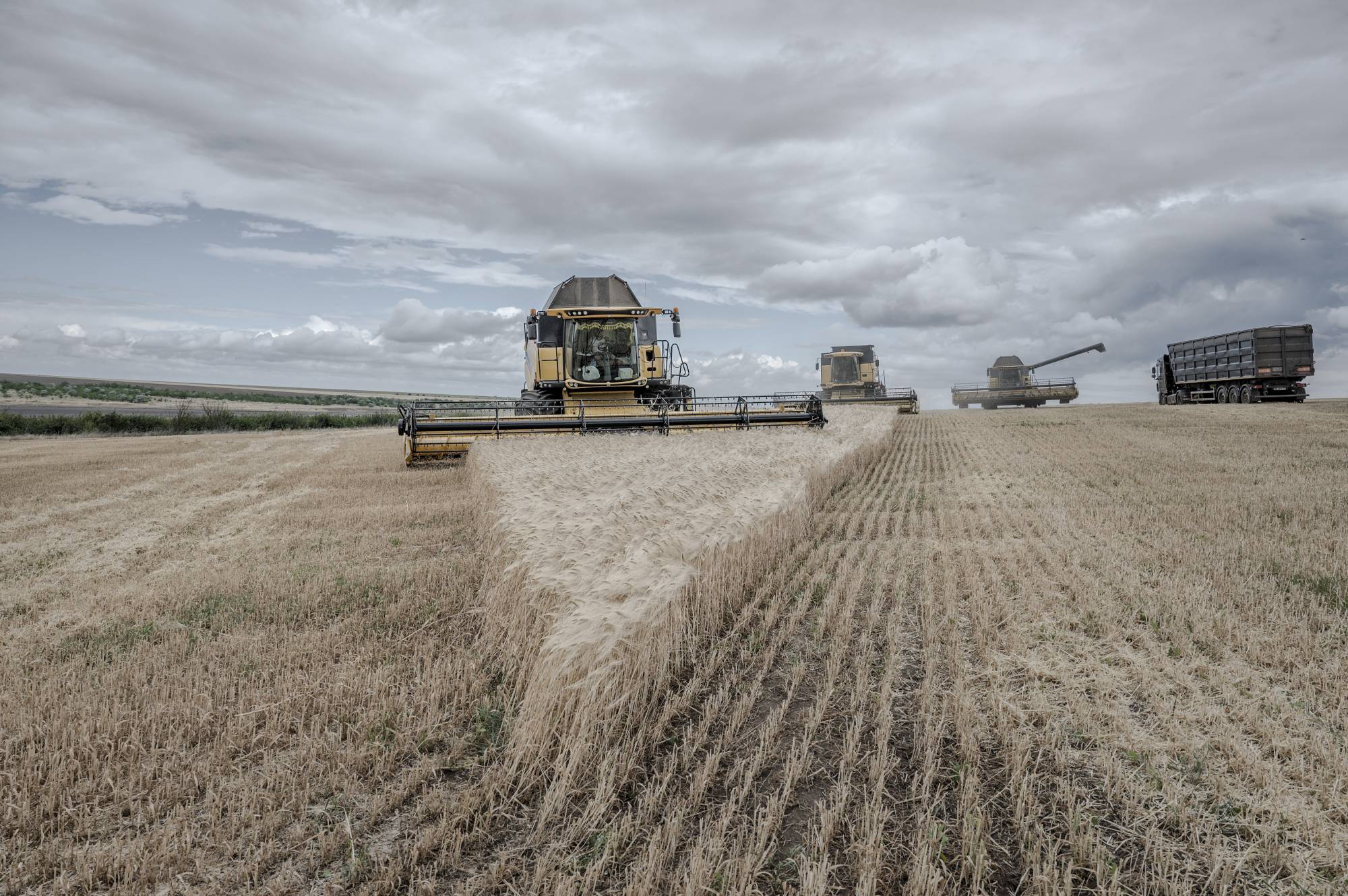[ad_1]
Farmers in Japan are trying to reduce the environmental burden of their operations by improving efficiency using data and information technology, in hopes of realizing sustainable agriculture.
In its food strategy adopted last year, the government set a target of reducing the use of chemical pesticides and fertilizers by 50% and 30%, respectively, by 2050.
Among farmers working toward sustainable agriculture is Shuichi Yokota, 45, who grows rice in Ibaraki Prefecture.
“The accumulation of data on when and how many seedlings were planted makes farm work more efficient,” Yokota said, adding that unnecessary use of seedlings and fertilizers can be reduced through analysis of the data.
“It’s unrealistic not to use any pesticides or chemical fertilizers at all,” as rises in temperatures and humidity due to global warming have increased outbreaks of plant diseases and pests, he said.
The problem is how much of the necessary pesticides, as well as inevitable waste, can be reduced, since both put a heavy burden on the environment.
Yokota managed to reduce the costs of seedlings and pesticides to half to one-third of the average by improving efficiency through the analysis of collected data.
In the future, he plans to utilize unused resources in the region. For instance, chicken feces can be procured from nearby poultry farms for use as fertilizer.
“In order to keep our business going, it is necessary to make agriculture sustainable,” Yokota said.
In Aomori Prefecture, Takuro Sato, 40, who practices organic farming, focuses on an organic chemistry theory that scientifically analyzes agricultural techniques in the Aizu region of Fukushima Prefecture.
“Making good soil is more important than anything else. How much weeds can be suppressed before rice planting is key,” said Sato, who aims to boost the added value of agricultural products.
Sato is trying to create soil resistant to pests with suitable compost selected through the analysis of detailed soil data. Soil temperatures are managed with fastidiously by using an app that manages the production process at each field.
Organic farming is widely seen as a practice that takes a lot of time and labor. But much of the time and labor can be reduced through the use of information technology, according to Sato.
In order to realize sustainable agriculture, however, it is necessary to change the mindset of the entire local community. If, for example, pesticides are sprayed by helicopter, they will be scattered far beyond the intended area, affecting fields of other farmers.
“It’s important to think about what kind of agriculture we should practice for the future that the region aims for,” Sato said.
In a time of both misinformation and too much information, quality journalism is more crucial than ever.
By subscribing, you can help us get the story right.
SUBSCRIBE NOW
[ad_2]
Source link

















